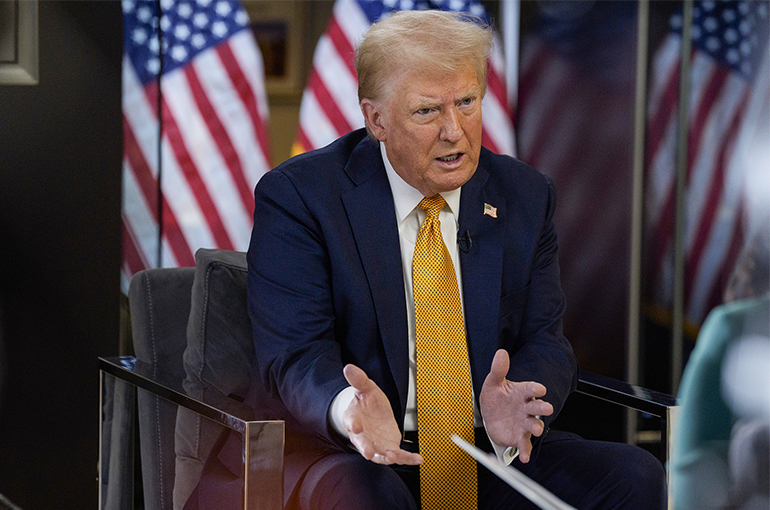 US Tariffs on China May Reach 40% Over Next Two Years, UBS' APAC CIO Says
US Tariffs on China May Reach 40% Over Next Two Years, UBS' APAC CIO Says(Yicai) Dec. 11 -- The threat by US President-elect Donald Trump to impose 60 percent additional tariffs on China is a tactic to put pressure and leave room for negotiation, but tariffs will still likely increase to 40 percent from next year to 2026, according to the Asia-Pacific regional chief information office of UBS Global Wealth Management.
The new tariffs will negatively impact the Chinese economy, dragging its gross domestic product growth by between 0.7 to 1 percentage point next year, Hu Yifan, who is also APAC macroeconomics head at UBS Global Wealth Management, said in an analysis of the 2025 outlook and investment strategy for global and Chinese markets yesterday.
The Chinese government will likely introduce more aggressive policies to cope with external pressure, Hu added. Due to the expected US tariff hikes, China may transfer some of its supply chains to neighboring countries, including Vietnam, Cambodia, and Indonesia, which will help upgrade these nations' supply chains, she noted.
Regarding monetary policy, UBS believes China still has room for interest rate and reserve requirement ratio cuts, Hu pointed out, adding that the RRR may be trimmed again before the end of this year, considering the low inflation rate.
Based on the pledge to embrace a "moderately loose" monetary policy and a "more proactive" fiscal policy next year made at a meeting of the Political Bureau of the Communist Party of China Central Committee on Dec. 9, the country may still set an economic growth target of 4.5 to 5 percent in 2025, Hu said.
In addition, Hu pointed out the excellent performance of the global market this year, especially the significant growth of the US market. The global economy has grown by 34 percent since 2020, with the stock market surging 81 percent, while corporate profits have grown significantly, with a striking resemblance to the 1920s, she noted.
Whether the trend of economic growth and stock market prosperity can be sustained has become the topic of the highest concern for investors, according to Hu. Amid the volatility and uncertainty of the global economy, the world seems to be ushering in a new "Roaring Twenties," she added.
Editor: Martin Kadiev